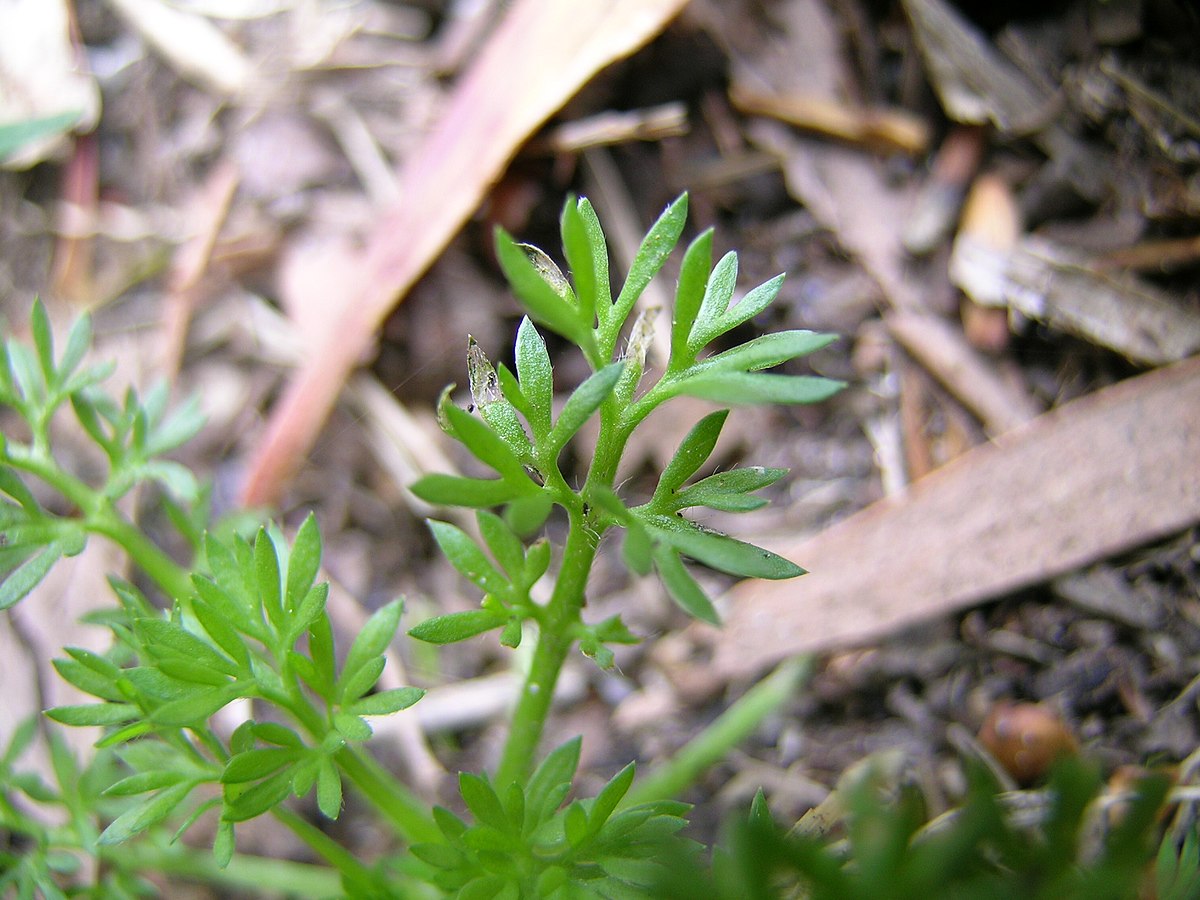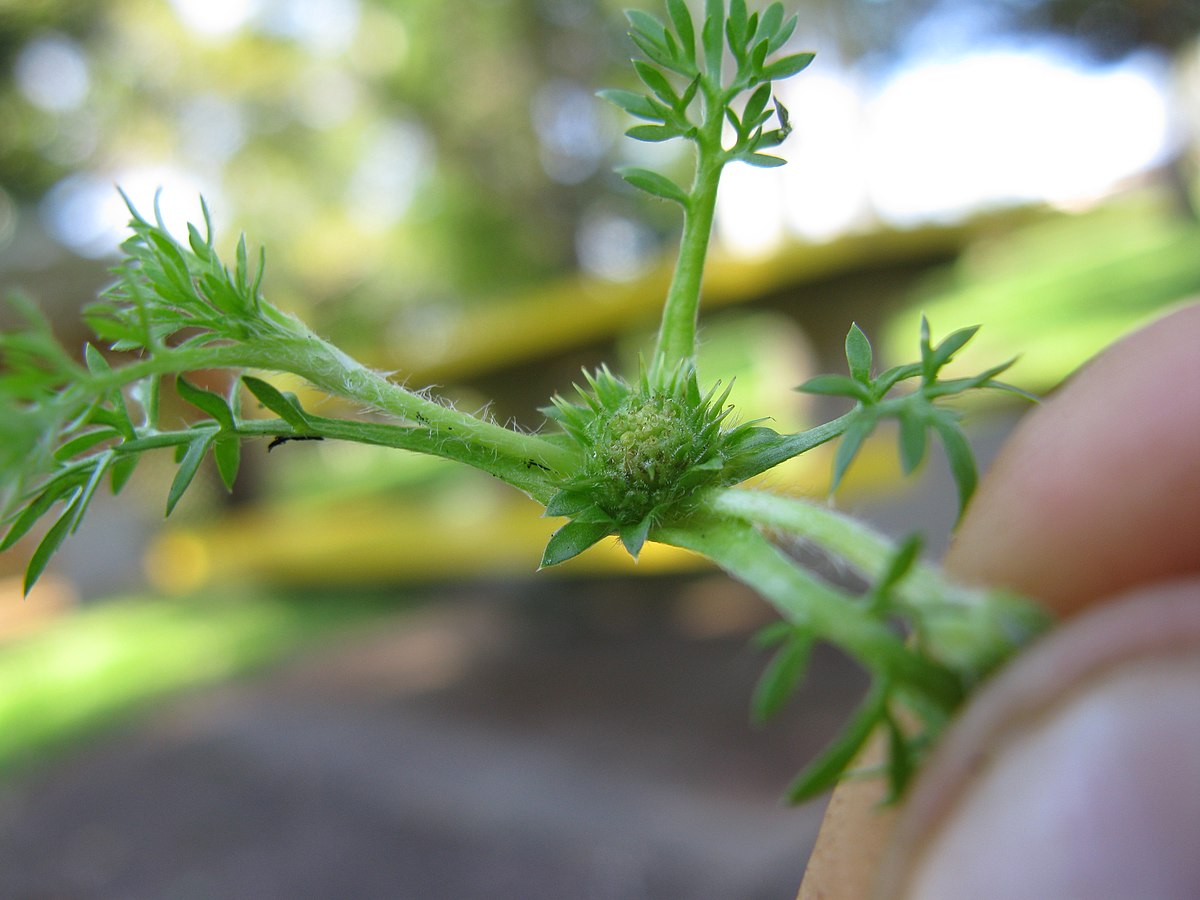Carpet Burweed

Carpet Burweed
(Soliva sessilis)
Priority: - Prevent / EDRR
Tags: Terrestrial
Identification and Reproduction
Identification:
- Carpet burweed, is also known as lawn burrweed, it is a low-growing annual plant.
- Forms a rosette with stems arranged in a sprawling pattern. Measures about 3-5 cm wide and 7 cm tall.
- Individual plants have at most 10 hairy stems growing from the base.
- Leaves are small, feathery and carrot or fern-like.
- This plant is covered in flat seeds that have stiff hairs and are spined.
Reproduction:
- It reproduces by seed.
- Up to 100 seeds per plant in a growing season.
- Bur-like seeds easily attach to fur and clothing.
Habitat & Ecology
- Carpet burweed is commonly invading exposed grasslands, pastures and recently disturbed sites.
- It is also regarded as a common lawn weed, negatively impacting lawns, parks, playing fields and golf courses.
Impacts
Social:
- Dead or alive, this plant poses a serious problem.
- If found on lawn will pose as a hazard for pets and humans because of its thorny nature.
Ecological:
- Once introduced, carpet burweed quickly spreads and forms a dense "carpet".
- These dense mats prevent the growth of native species.
- It has a competitive advantage over native vegetation as it flowers and seeds very early in the spring.
- When it dies off in the summer it leaves patches of bare soil, allowing germination of its own seeds.
Management
Prevention is a high priority for this species.
- Early detection and eradication is the best control measures for this plant.
- Learn to identify this plant and report sightings.
- Identified infestations should be fenced off to limit accidental spread of seeds.
- Clean and remove any seeds that may attach to clothing, shoes, equipment and pets when leaving an infested site.
- Refrain from moving unknown soil and plant matter.
- Maintain healthy and tall turf grass to prevent establishment of carpet burweed.
Mechanical/Manual Control:
- Small infestations can be hand pulled. Ensure removal is done before seed set to prevent further dispersal of seeds.
- Plants should not be composted but bagged and thrown in the garbage.
Resources
Download the factsheet from Garry Oak and Associated Ecosystems in British Columbia on Soliva sessilis: carpet burweed here.
For more details check out the Invasive Species Compendium datasheet on Soliva sessilis.
Header photo (Harry Rose).




